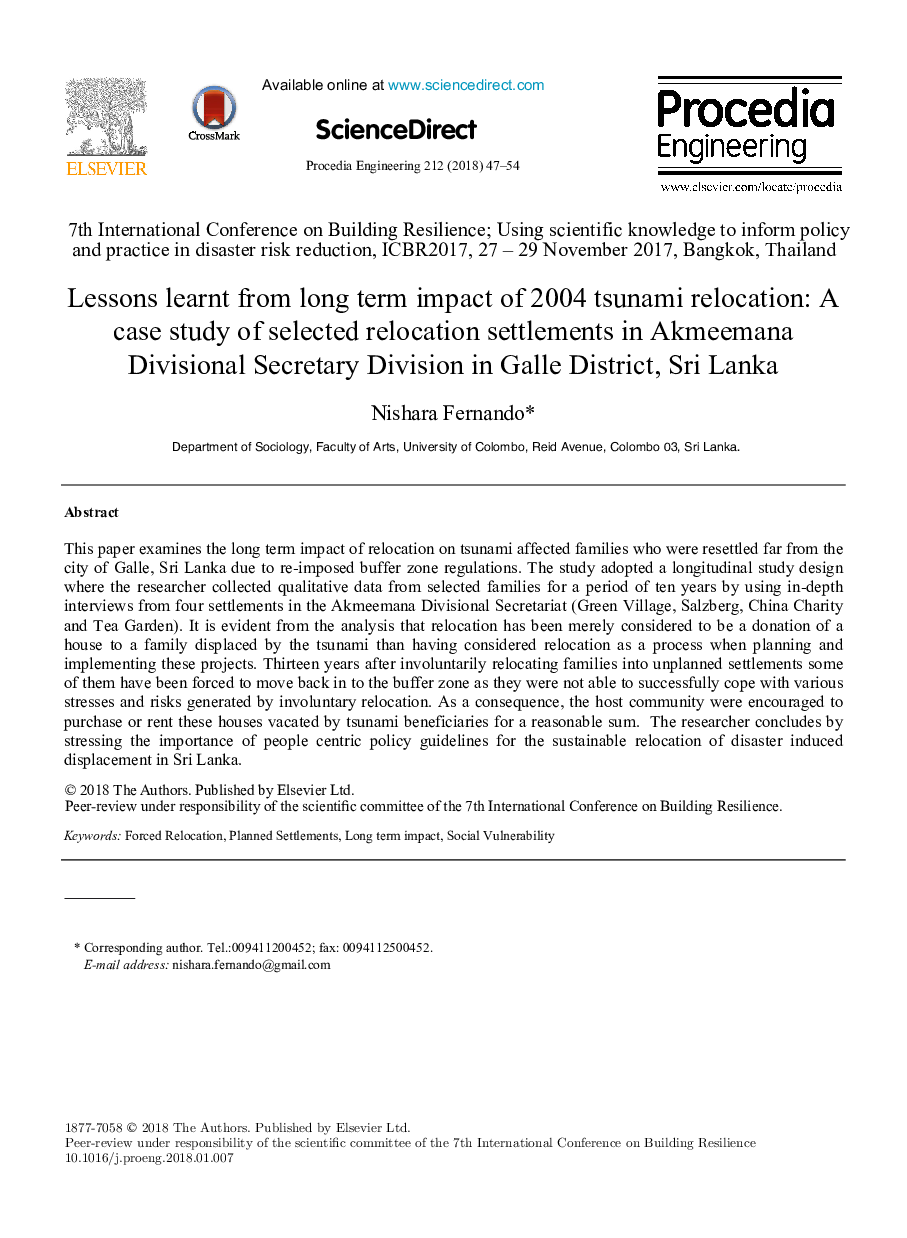| Article ID | Journal | Published Year | Pages | File Type |
|---|---|---|---|---|
| 7225833 | Procedia Engineering | 2018 | 8 Pages |
Abstract
This paper examines the long term impact of relocation on tsunami affected families who were resettled far from the city of Galle, Sri Lanka due to re-imposed buffer zone regulations. The study adopted a longitudinal study design where the researcher collected qualitative data from selected families for a period of ten years by using in-depth interviews from four settlements in the Akmeemana Divisional Secretariat (Green Village, Salzberg, China Charity and Tea Garden). It is evident from the analysis that relocation has been merely considered to be a donation of a house to a family displaced by the tsunami than having considered relocation as a process when planning and implementing these projects. Thirteen years after involuntarily relocating families into unplanned settlements some of them have been forced to move back in to the buffer zone as they were not able to successfully cope with various stresses and risks generated by involuntary relocation. As a consequence, the host community were encouraged to purchase or rent these houses vacated by tsunami beneficiaries for a reasonable sum. The researcher concludes by stressing the importance of people centric policy guidelines for the sustainable relocation of disaster induced displacement in Sri Lanka.
Keywords
Related Topics
Physical Sciences and Engineering
Engineering
Engineering (General)
Authors
Nishara Fernando,
